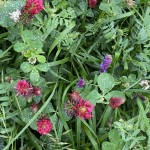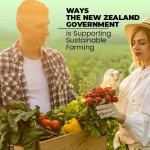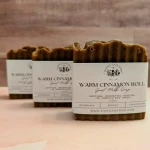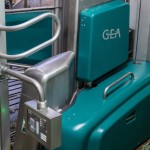Springhill Orchard "Our People" with Ben James
Added one year ago
By Kate Taylor

It may be an apple orchard, but the people are the mainstay of Craigmore Sustainables’ Springhill Orchard on Wakarara Rd in Central Hawke's Bay.
Business manager Ben James loves being asked what effect the business has had on the lives of its workers. One story gives him goosebumps – the young man who went from not showing up on time and not working a full day, through to running his own team of 15 RSE workers.
“He’s come right out of his shell. He couldn’t even look me in the eye when he first started. Now he’s the first one on site in the morning and the last one to leave.”
Some of the young staff are graduates of a course called Hei Whanake, which is run by Ben’s partner Jordan Hetterley, that teaches them about work ethic and other life skills to help them navigate what it takes to get and hold down a job. Pastoral care is a big part of the business, he says.
“It’s that care and attention outside the orchard gate as well that will hold us in good stead in the future.”
Prior to 2019, Springhill Orchard (and its neighbouring vineyard) was pastoral farming and annual cropping. Roll on to the end of 2023, the total pipfruit area is 180 hectares, including 44.5ha of apples planted this winter. Of that total, 136ha is under full netting with plans to net the new area as well.
It’s a high intensity business with a high ratio of permanent staff per hectare.
They’ve already hit and surpassed the original goal of 73 full time jobs. At full production, the site will swell to 350 total labour units to harvest the crop. The orchard’s business manager apples Ben James says permanent employment, with guaranteed minimum hours, changes people’s lives.
“Casual seasonal employment is very hard for families to manage, particularly when there's a cost of living crisis going on. It’s very disruptive; learning how to budget variable incomes is not something that we leave high school with the skill set to do. So regardless of weather conditions, you're guaranteed X number of hours per week, which gives my permanent staff a level of security that they can actually pay the bills each week, despite what the weather gods are doing.”
Permanent Springhill staff were on full wages for the two weeks directly after Cyclone Gabrielle, even though the site was shut down with the harvest of early varieties looming.
“We could get onto the site on the Thursday after the cyclone, and it was dry enough to work, but we had staff who'd lost houses … So we went out for two weeks and just mucked in with them and around the community wherever the help was needed.”
The Waipawa River breached the back of the apple orchard and the neighbouring vineyard. Some river flats were lost, which was never going to be planted (and definitely won’t be now). Debris in a water way took out some side netting, but there was no damage that affected the income stream on the apple orchard; the cyclone didn’t have any effect on the fruit volumes or quality in our CHB operation.
Ben says CHB produces some of the best apple crops in New Zealand by quality and volume per hectare – record-breaking crops.
“For example, for Breeze production, like for like or same-age trees, the upper quartile in Hawke's Bay is 67 tonne per hectare. We’re doing 84 tonne per hectare. So we’re not just getting over the mark, we’re smashing it,” he says.
Nine varieties are grown, all under hail netting, covering early, medium, and late harvesting: Breeze, Red Sonya, Lady in Red, Ju Gala, Envy, Dazzle, Rockit, Cosmic Crisp, as well as a new unnamed variety.
The netting reduces hail risk, wind, and bird damage. The orchard runs drip irrigation at night and has live moisture monitoring probes.
“We’re constantly getting live feedback out of the orchard around where our moisture sits in the soil profile. When we break in new land, we address any major soil issues with ground-applied fertiliser, but after that, we fertigate. We also leaf test every month … measuring what’s in the tree and where the deficiencies are, and then adjust our fertigation to suit, so we’re quite informed around our inputs into the land.”
He says a lot of different partnerships make that possible.
“We have our irrigation partnership to give us the infrastructure for the flexibility to do that. Then our consultant looking at the results of the leaf test and advising on the plan. We have grower knowledge in terms of what we're trying to achieve in our strategy, and we have the support of the likes of Fruitfed, which physically come in and take the tests and send them off. Everything we do on the orchard is a partnership. We can’t create greatness by ourselves; we need advice, and we need industry expertise.”
It’s a cool story about people, the productivity of the land and the special environment.
“Central Hawke's Bay has been overlooked by horticulture for decades and examples like this will make people take notice, and realise there’s a better land use, and with that land use change comes massive opportunities in employment ... That’s part of the Craigmore Sustainables story to invest in under-developed areas around the country, change land use and lift that region’s GDP, and I’m really blessed to be part of it.”
Ben says he has been given a lot of opportunities in his life, particularly to step back into horticulture as an adult, to enter and win young grower competitions, and move up the ladder.
“I had the right people around me to take those opportunities. So now, I’m pretty passionate about giving those opportunities back.”
Ben James: ben.james@craigmore.com
Join the conversation
Be the first to leave a comment.
Leave a comment
All comments are reviewed before they are published on the website. Your email address will not be published.




Family-Owned Farm Embraces Regenerative Agriculture to Grow and Educate


